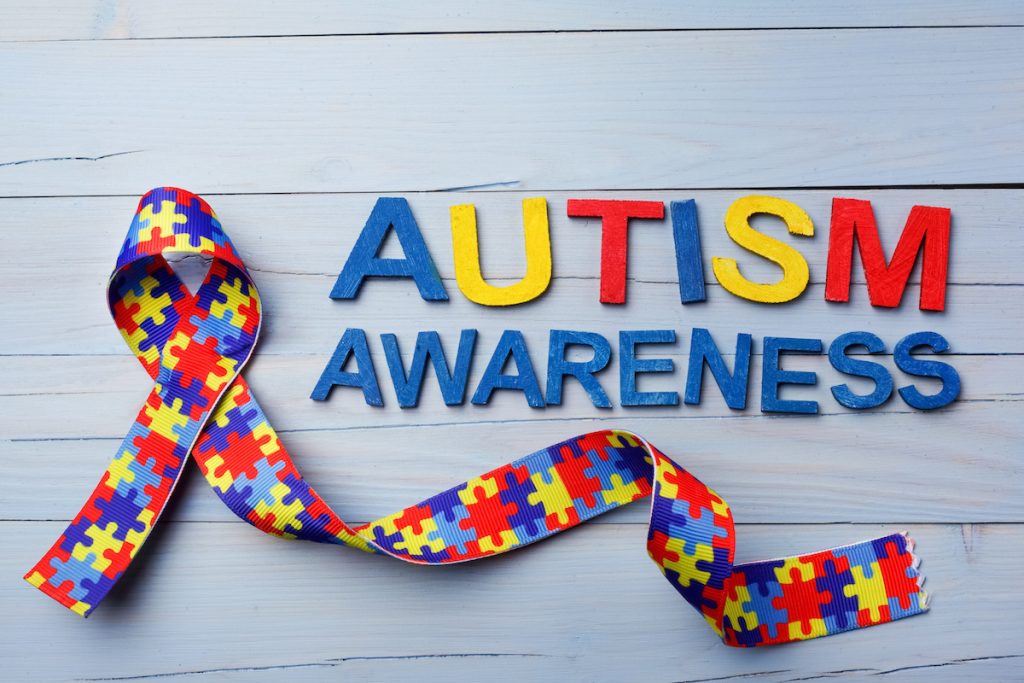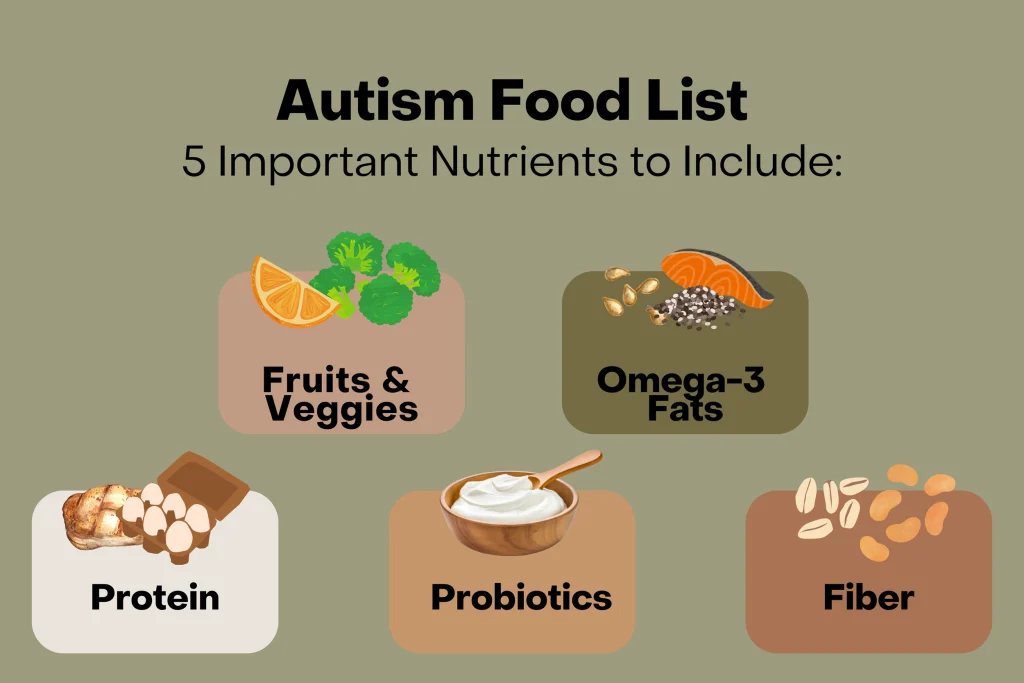Autism Spectrum Disorder (ASD) is a neurodevelopmental condition that affects communication, behavior, and sensory processing. Autism isn’t an illness — it’s a different way the brain works. Many autistic individuals have incredible abilities in creativity, memory, logic, and detail-focused thinking. As research advances, nutrition is gaining attention as one supportive factor that may help improve comfort, mood regulation, and daily functioning.

Processed Foods and Brain Health
Recent studies suggest that certain food preservatives may influence early brain development. One of them, propionic acid (PPA), often found in packaged bread, baked goods, processed cheese, and some dried fruits, naturally exists in the gut — but higher intake from heavily processed foods may disrupt healthy brain cell balance.
Foods Some Children May Be Sensitive To
Parents often notice that certain foods can affect their child’s digestion, behavior, or comfort. Common sensitivities include:
- Dairy (can cause discomfort or irritability)
- Corn and high omega-6 foods (may promote inflammation)
- Refined sugars (energy crashes and mood swings)
- Artificial additives and MSG (possible overstimulation)
- Gluten (digestive upset in some children)
Reactions vary widely, so gradual food changes and observation help guide what works best.
Nourishing Foods That Can Help
Whole, nutrient-rich foods may support brain and gut health, improve energy levels, and help with attention and mood. Helpful choices include omega-3-rich foods (like salmon and walnuts), fiber-filled foods (such as oats, beans, sweet potatoes, greens, and bananas), lean proteins, colorful fruits and vegetables, and key vitamins and minerals like B-vitamins, vitamin D, magnesium, and zinc.
Selective eating is common in autism, so professional guidance may be useful to ensure balanced nutrition or safe supplementation if needed.

Practical Everyday Tips
Healthy eating doesn’t have to be overwhelming. Small steps can make a big difference:
- Choose fresh or lightly processed foods when possible
- Check labels to avoid unnecessary preservatives
- Cook simple meals at home more often
- Offer fruit or nuts instead of packaged snacks
- Include healthy fats like salmon, walnuts, or chia seeds
- Add vegetables slowly into familiar meals
Diet alone doesn’t treat autism, but good nutrition can support better digestion, focus, energy, and overall well-being — helping children on the spectrum feel more comfortable and thrive alongside therapy, medical guidance, and supportive care.


